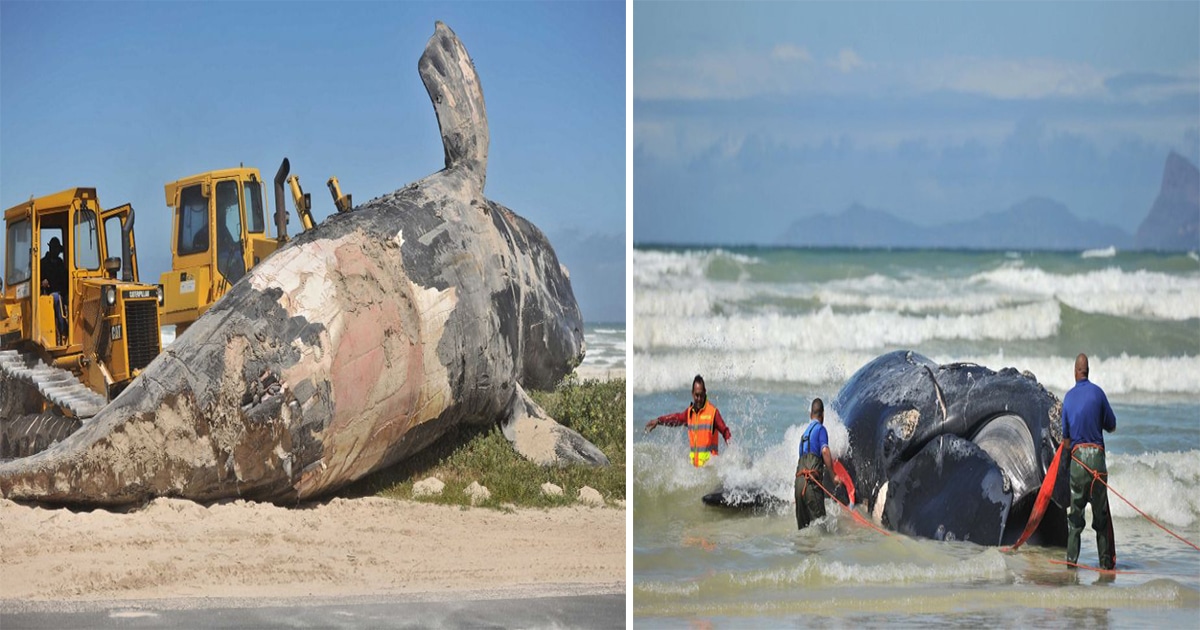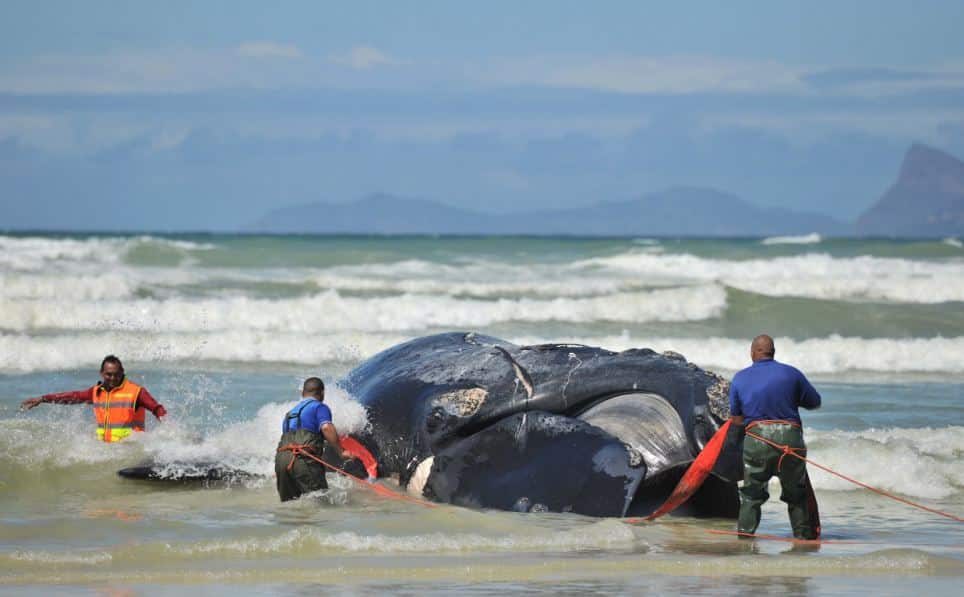
A section of South Africa’s coastline has been cordoned off as a result of a distressing incident involving a 15-meter whale that washed ashore after being attacked by a group of great white sharks. The shocking scene unfolded near Cape Town, specifically Muizenberg Beach, leaving authorities with no choice but to take precautionary measures to ensure public safety.
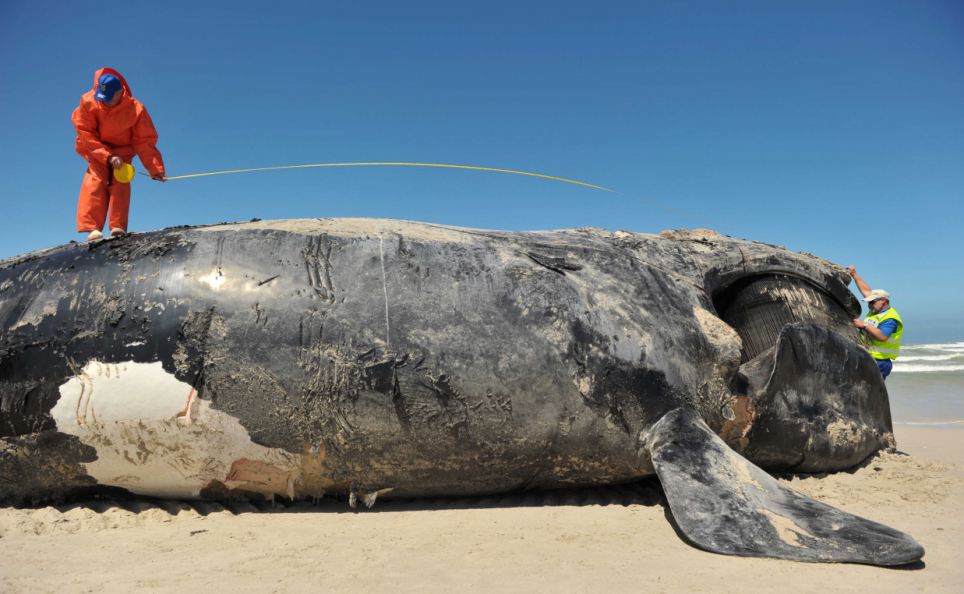
The lifeless body of the southern right whale was swiftly removed from the surf after its presence attracted a significant number of great white sharks to the area. In an effort to minimize any potential dangers, authorities closed off a stretch of shoreline from Muizenberg to Monwabisi. This closure, deemed necessary by officials, was enacted as a proactive measure to prevent any unwanted interactions between beachgoers and the sharks.
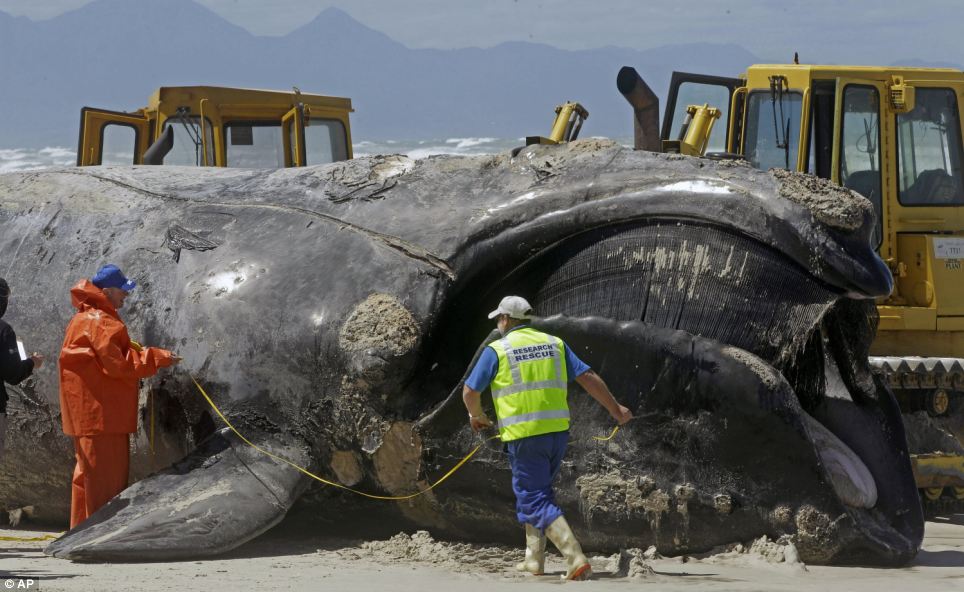
The visual evidence of the whale’s encounter with the formidable predators was stark. As the enormous carcass was flipped over by bulldozers, the horrifying wounds inflicted by the sharks became apparent. Sections of the whale’s body bore the marks of a ruthless feeding frenzy, clearly illustrating the intensity of the attack.
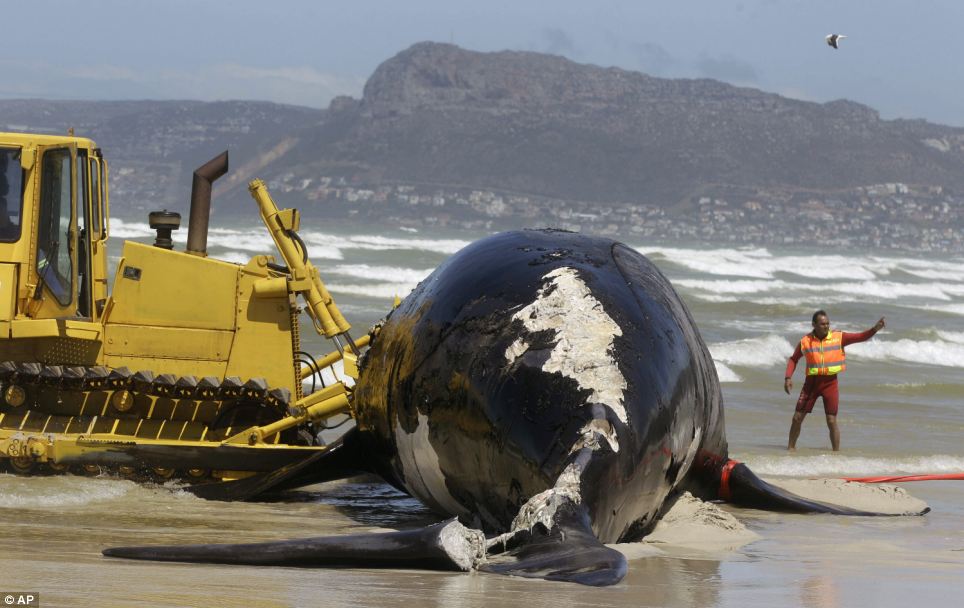
Responding with urgency, disaster response teams labored to extract the massive creature from the water and onto a flat-bed truck. This undertaking was no easy feat, given the colossal weight of the whale, which can reach up to a staggering 47 tonnes. The coordinated efforts of the salvage team, equipped with bulldozers and a harness, proved successful as they carefully maneuvered the lifeless behemoth onto the beach, allowing authorities to proceed with the necessary actions.
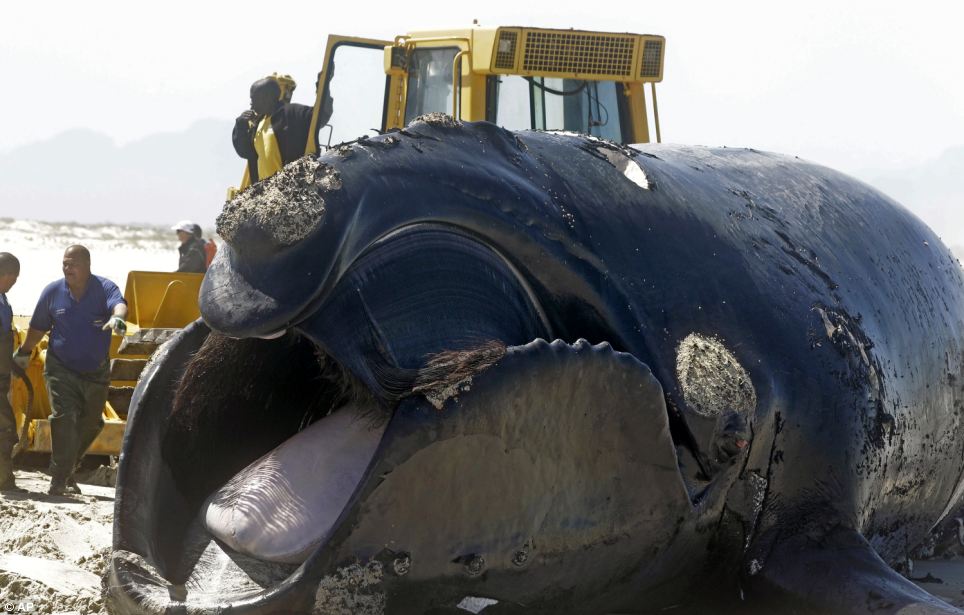
Pathologists were summoned to the scene to examine the carcass and ascertain the cause of the whale’s demise. Samples were taken from the creature’s body to aid in determining whether the whale was still alive during the shark attack or had succumbed to illness prior to the encounter. Understanding the circumstances surrounding this tragic event is crucial for obtaining insights into the dynamics between these majestic marine species and the delicate balance of the ocean’s ecosystems.
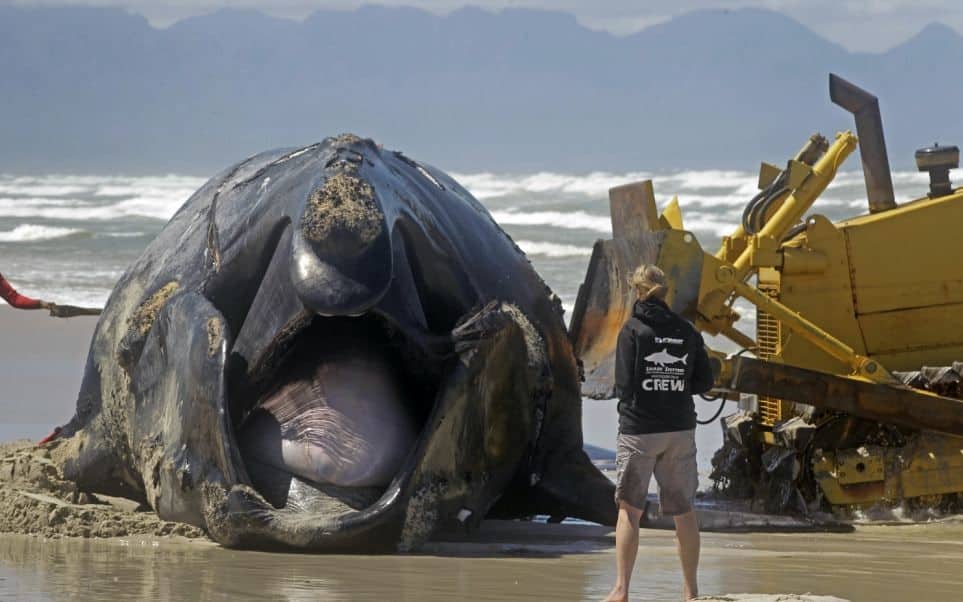
Despite the closure and warnings issued by authorities, curious onlookers flocked to the site, undeterred by the potential risks. The presence of numerous spectators serves as a reminder of humanity’s innate fascination with nature’s raw power and the allure of witnessing such rare events.
As the whale’s body was carefully prepared for disposal, dust clung to its massive form, serving as a poignant reminder of the circle of life and the inevitable return of all living beings to the earth. Eventually, the deceased whale was loaded onto a truck and driven away, bidding a final farewell to the beach that had become its final resting place.
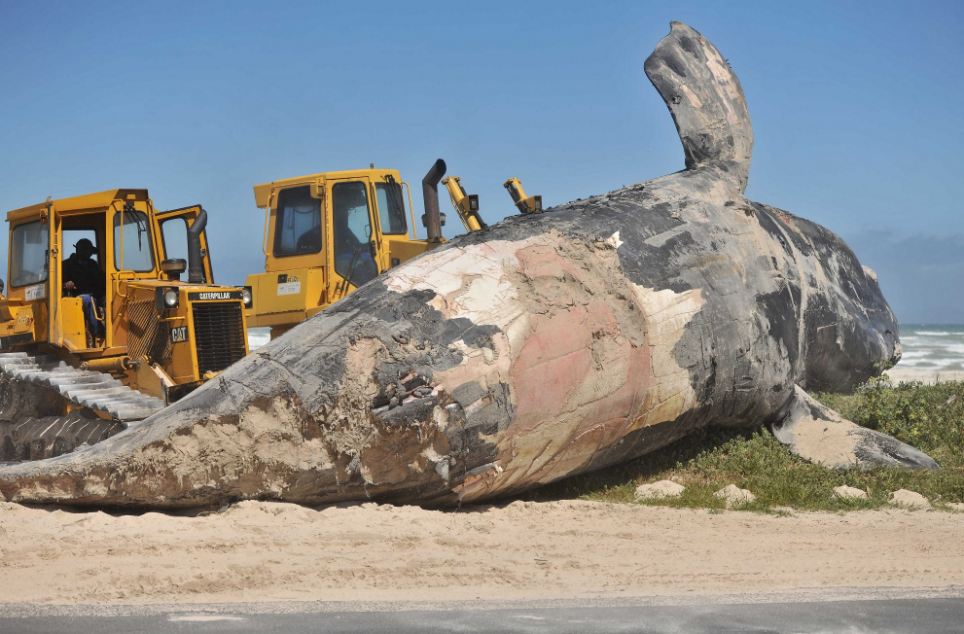
While this incident has captured attention and raised questions about human-wildlife coexistence, it also highlights the importance of safeguarding the fragile balance of marine ecosystems. Great white sharks, as apex predators, play a vital role in maintaining the health and diversity of the ocean. Conservation efforts and responsible practices should be prioritized to ensure the long-term survival of both marine life and coastal communities.
The sight of the beached and ravaged whale along South Africa’s coastline serves as a poignant reminder of the awe-inspiring mysteries and wonders of the deep sea. It compels us to reflect on our place in the natural world and the responsibility we bear as caretakers of the environment.
